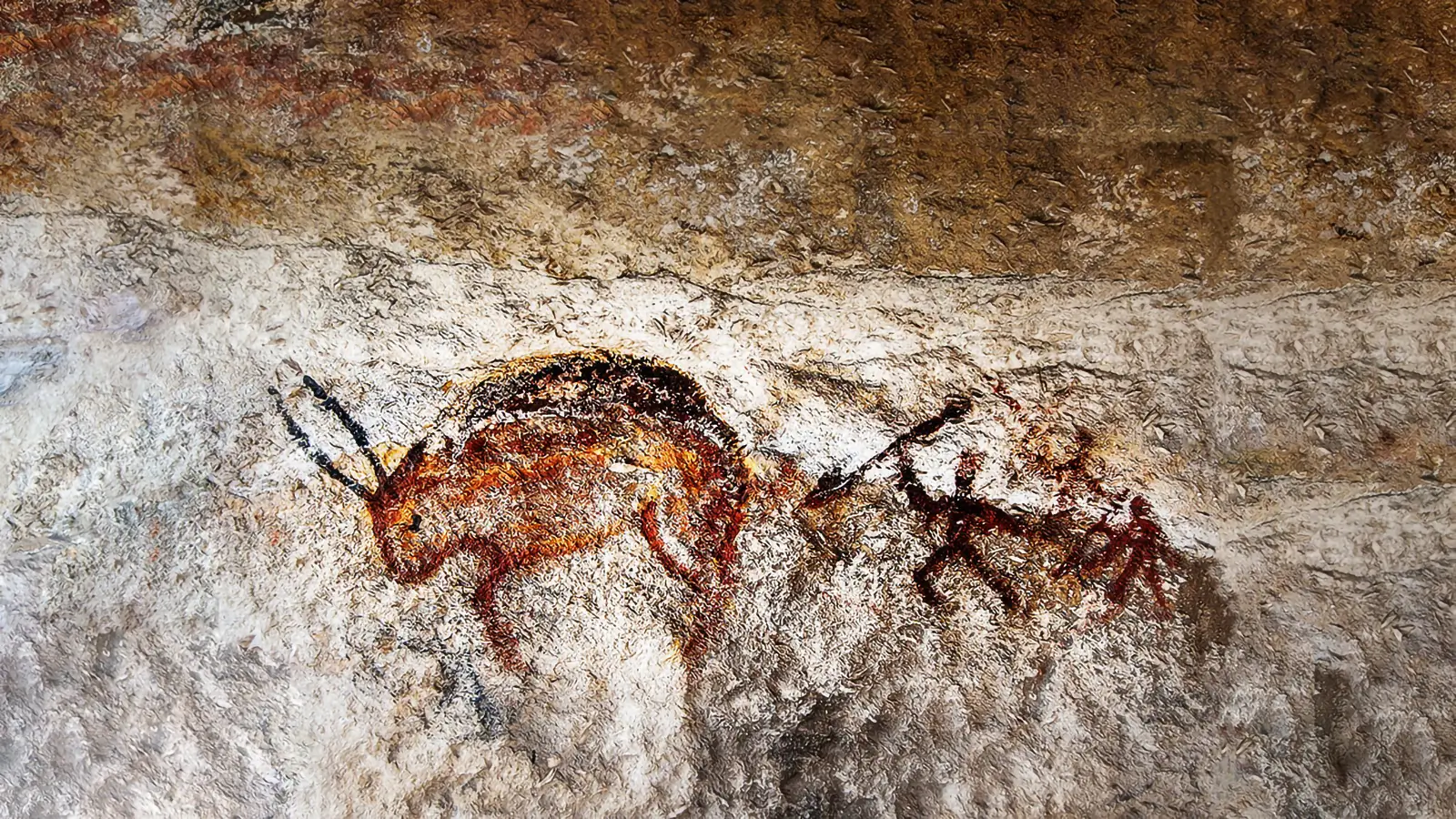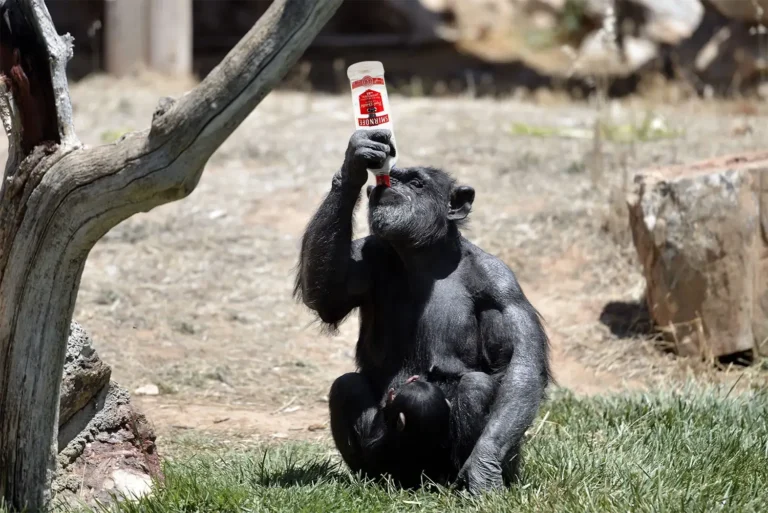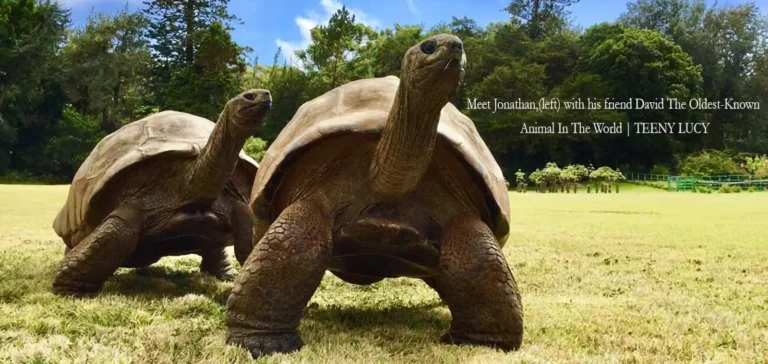Dieta mediterrânica- "Maravilha" de azeite de oliva
Comercializado como uma maravilha de azeite, a dieta Mediterrânea não tinha nada a ver com qualquer óleo de qualquer tipo, exceto na medida em que ele pode substituir a manteiga e a banha.
Milos Pokimica
Escrito por: Milos Pokimica
Revisto Clinicamente Por: Dr. Xiùying Wáng, M.D.
Actualizado em 9 de Junho de 2023A boa e velha dieta mediterrânica saudável. Comercializada como uma maravilha do azeite que não tem nada a ver com qualquer tipo de azeite, excepto na medida em que pode substituir escolhas ainda piores, como uma gordura saturada normal, como a manteiga e a banha. Foi precisamente assim que até o pai da dieta mediterrânica a viu (Chaves, 1987). Quando se vai ao pubmed.gov e se procura uma dieta mediterrânica, há cerca de 5000 resultados. A dieta mediterrânica é constituída por muitas dietas em muitos países diferentes. Pode ser marroquina, grega, espanhola, italiana ou de qualquer outro país.
Contudo, quando falamos da dieta mediterrânica, o que está implícito é a dieta na ilha de Creta na era pós Segunda Guerra Mundial. Além disso, o que vem a seguir é uma grande questão: Porque é que as doenças cardíacas eram raras no Mediterrâneo? Ou seja, na ilha de Creta, após a Segunda Guerra Mundial.
In 1948 after the war and socioeconomic collapse, the government of Greece was concerned about malnutrition and the health status of its citizens. They decided to invite the Rockefeller Foundation with the goal of undertaking an epidemiological study on the island of Crete. In 1952 impressed by low rates of heart disease Ancel Keys, the same scientist that was in charge of the Minnesota Starvation Experiment, noted the connection after researching the data between fat and especially saturated fat, and heart disease. Although at that time he did not see cholesterol as the problem because it would mean the animal products are the guilty ones. The connection between dietary fat and heart disease was observed even earlier in the 1930s and was influential on Keys’ work, but data from Crete made him write a paper about it in 1953 and made public addresses. The famous Seven Country Study was to begin five years later in 1958 to investigate Keys’ concerns (www.sevencountriesstudy.com). Na década de 1960 era uma crença comum que a gordura saturada contribui para as doenças cardíacas. A Dieta das pessoas na ilha de Creta foi um catalisador para esta investigação mais tarde. Em 1970 foi apresentado, pela primeira vez, o Estudo dos Sete Países. Agora Keys viveu até aos 100 e na altura não era muito dos radicais como as confusões de colesterol gostariam que acreditasse. Recomendava comer menos gordura, ou seja, gordura na carne e gordura em geral, como ovos (ou pelo menos gemas) e produtos lácteos, e em vez de comer mais peixe e galinha. Considerava que as frutas e legumes eram apenas alimentos complementares, e tinha um colesterol de cerca de 200. Esse número não é saudável de longe, mas ele viveu até 100. O problema era que ele era um médico do mesmo sistema que qualquer outro médico. A arteriosclerose não acontece normalmente numa idade como as confusões de colesterol gostariam que acreditássemos, devido a todo o fluxo de sangue stressante.
Arteriosclerosis is a disease, not the aging process. We can go and look at arteries and measure the blood pressure of poor people in places like Crete. Keys did not see the real truth about what was real diet on Crete. He thought it was just fat and didn’t see the problem in animal protein. Animal correlação de proteínas foi negligenciado mesmo nos gráficos. Ele baralhou a água, apontando apenas para a gordura.
No entanto, nem isso era suficiente. Mesmo isso era exagerado. Em 1966, George Campbell e Thomas L. Cleave publicaram "Diabetes, Trombose Coronária e Doença da Sacarina". Argumentavam que as doenças crónicas ocidentais, como as doenças cardíacas, as úlceras pépticas, a diabetes e a obesidade, eram produzidas por uma coisa: "A doença dos hidratos de carbono refinados". Era uma história interminável. Nunca parou até hoje. Tudo é uma mentira que é confrontada com a mentira oposta. Guerras de dietas e confusão criadas artificialmente. Foi uma boa estratégia de design que não mudou nada em 70 anos, excepto o facto de ter enredado pessoas normais em dinheiro causador de doenças, criando um ciclo maléfico de miséria. Mesmo nos tempos actuais, é a mesma velha história de manipulação. Em 2001, por exemplo, no artigo da revista Science intitulado "Nutrition: The Soft Science of Dietary Fat", Gary Taubes escreveu:
“It is still a debatable proposition whether the consumption of saturated fats above recommended levels by anyone who’s not already at high risk of heart disease will increase the likelihood of untimely death…or have hundreds of millions of dollars in trials managed to generate compelling evidence that healthy individuals can extend their lives by more than a few weeks, if that, by eating less fat.”
People 70 years later think that the Mediterranean diet is healthy because of olive oil. This is an excellent illustration of a half-truth. Italian restaurants market themselves as a healthy Mediterranean diet cuisine with spaghetti carbonara and alcohol. The death rate from heart disease in Crete at that time was more than 20 times, not 20 percent, 20 times less than in the US. We statistically see this data from places like rural China and Crete and Okinawa and on and on and see that these people’s diet is simple and similar to each other. How much stupidity do we have to have not to see the real story of what is happening? Scientists with a considerable level of education are not the stupid ones. They have six-figure annual income plus bonuses. They are the smart ones. We are not. Nutritional science is not secret deep underground military propulsion system laboratory research. There are no real debates in the field of nutrition, only purposely creating real confusion.
So what did they eat on the island of Crete in the World War 2 aftermath? The answer is the same. No meat, eggs, or dairy. Just poor people’s food like fruit and vegetables, grains, nuts, and legumes. Things that grow locally. In numbers, they ate more than 90% plant-based, and meat, fish, dairy, and egg products combined are about 7%. They did eat some of the olive oil because olives grow in Crete but that is not the olive oil diet. Or the wine diet. There is nothing healthy about wine except grapes. We would be better off just drinking raw grape juice. If we look at Greece today what is it that we think we would find? They have the number 1 score in Europe in child obesity. The Island of Crete included. As soon as the economy improves the meat, cheese, sugar, and alcohol come in a package. And smoking too. Greece has a rate of tobacco consumption above 40%. The Mediterranean diet was not a local-specific Mediterranean diet like Italian cuisine or Greek cuisine or such. It was a poverty diet without meat and eggs, and dairy, similar to diets in all poverty or war-stricken places, and industry does not like to mention this. Heart disease was a rarity in Greece. Was. Not anymore. And even in Crete at times of war, some rich people ate “normally” meaning eating meat every day instead of once in two weeks. Heart attacks were normal for them too, unlike the rest of the common people that were struck by poverty. No one today eats the real Mediterranean diet anymore. The pure Mediterranean diet of today that is predominantly plant-based is not a real whole food diet. It is dominated by white flour, the consumption of oil and salt, and alcohol. In Crete, they did not eat refined white pasta from the factory with a sauce full of extracted oil and bottles of wine. Alcohol is a known breast cancer risk factor even if we disregard inflammation and toxicity. That is not a health-promoting meal. Well, that is not a health-promoting meal if we do not compare it to the even worse standard American meal of today. So yes, the Mediterranean diet is healthier than the regular diet but not as healthy as a real natural human diet. Whole food plant-based diet.
O problema é que os alimentos normais normais não são tão saborosos como os refinados cheios de sal e óleo e açúcar so hardly anyone sticks to it. From a young age, children are given all of these chemicals we consider to be food, so we are addicted to them in childhood and have no real baseline anymore for comparison to what real human food is. That is why poor people’s diet works. If we disregard cholesterol and toxins and saturated fats that come from animal products and if we analyze the individual components of diet in Crete, we see that actually, it was not grains that were protective against heart attack. Grains, were more neutral and because they were whole food with fiber they had no effect on obesity or diabetes. Among the individual components in the Mediterranean diet consumption of greens and nuts actually, had most of the effects on lowering cardiovascular disease risk. Vegetarians that eat nuts have a lower risk of cardiovascular disease instead of those who don’t, and there are now a number of studies on this topic also. Here is one (Guasch-Ferré et al., 2013) com a conclusão: "O aumento da frequência do consumo de frutos secos foi associado a uma redução significativa do risco de mortalidade numa população mediterrânica com elevado risco cardiovascular."
As nozes têm alto teor de óleo mas também alto teor de fibras, pelo que o óleo não é imediatamente absorvido como a gordura da carne ou óleo refinado e, ao contrário da carne ou dos frutos secos, são ricos em antioxidantes e outras substâncias fitoquímicas. Um outro benefício dos frutos secos é que ao combiná-los com o óleo verde aumentará a absorção fitoquímica de produtos químicos solúveis em gordura que se encontram em vegetais já saudáveis. Não temos de engordar pouco e evitar o consumo de nozes e sementes e comer predominantemente amido. Devemos comer amido e nozes e todos os outros alimentos numa grande variedade possível. Até agora, a ciência não correlacionou o elevado consumo de sementes e nozes com qualquer doença, incluindo a obesidade, excepto em pessoas que têm alergias. Muito pelo contrário. São benéficos em quase todas as condições. As castanhas do Brasil estão cheias de selénio, e as nozes são protectoras contra o cancro, os lignanos nas sementes de linhaça são um dos químicos mais protectores contra o cancro da mama e estão também cheias de óleos ómega três para o funcionamento do cérebro. Os nossos antepassados comeram nozes e sementes cruas durante muito tempo. São os nossos alimentos naturais tanto como frutos ou grãos ou folhas jovens ou outros vegetais de folhas verdes.
A dieta saudável é a que tínhamos evoluído e adaptado à alimentação. É isso mesmo.
Referências:
- Keys A. (1987). Olive oil and coronary heart disease. Lancet (Londres, Inglaterra), 1(8539), 983–984. https://doi.org/10.1016/s0140-6736(87)90337-0
- Guasch-Ferré, M., Bulló, M., Martínez-González, M. Á., Ros, E., Corella, D., Estruch, R., Fitó, M., Arós, F., Wärnberg, J., Fiol, M., Lapetra, J., Vinyoles, E., Lamuela-Raventós, R. M., Serra-Majem, L., Pintó, X., Ruiz-Gutiérrez, V., Basora, J., Salas-Salvadó, J., & PREDIMED study group (2013). Frequency of nut consumption and mortality risk in the PREDIMED nutrition intervention trial. BMC medicine, 11, 164. https://doi.org/10.1186/1741-7015-11-164
Publicações Relacionadas
Você tem alguma dúvida sobre saúde e nutrição?
Eu adoraria ouvir de você e respondê-las em meu próximo post. Agradeço sua contribuição e opinião e espero ouvir de você em breve. Eu também convido você a siga-nos no Facebook, Instagram e Pinterest para mais conteúdos sobre dieta, nutrição e saúde. Pode deixar um comentário e ligar-se a outros entusiastas da saúde, partilhar as suas dicas e experiências e obter apoio e encorajamento da nossa equipa e comunidade.
Espero que este post tenha sido informativo e agradável para si e que esteja preparado para aplicar os conhecimentos que aprendeu. Se achou este post útil, por favor partilhá-lo com os seus amigos e familiares que também possam beneficiar com isso. Nunca se sabe quem poderá precisar de alguma orientação e apoio no seu percurso de saúde.
– Você Também Pode Gostar –

Aprender Sobre Nutrição
Milos Pokimica é médico de medicina natural, nutricionista clínico, escritor de saúde e nutrição médica, e conselheiro em ciências nutricionais. Autor da série de livros Go Vegan? Revisão de Ciênciaopera também o website de saúde natural GoVeganWay.com
Medical Disclaimer
GoVeganWay.com traz análises das pesquisas mais recentes sobre nutrição e saúde. As informações fornecidas representam a opinião pessoal do autor e não pretendem nem implicam substituir aconselhamento, diagnóstico ou tratamento médico profissional. As informações fornecidas são apenas para fins informativos e não se destinam a servir como substituto para consulta, diagnóstico e/ou tratamento médico de um médico ou profissional de saúde qualificado.NUNCA DESCONSIDERE o CONSELHO MÉDICO PROFISSIONAL OU adiar a BUSCA de TRATAMENTO MÉDICO por causa DE ALGO QUE TENHA LIDO OU ACESSADO por MEIO de GoVeganWay.com
NUNCA APLIQUE QUAISQUER MUDANÇAS de estilo de VIDA OU QUALQUER MUDANÇA COMO UMA CONSEQUÊNCIA DE ALGO QUE TENHA LIDO NO GoVeganWay.com ANTES de CONSULTORIA de LICENÇA MÉDICA.
No caso de uma emergência médica, ligue para o médico ou para o 911 imediatamente. GoVeganWay.com não recomenda ou endossa qualquer específicos, grupos, organizações, exames, médicos, produtos, procedimentos, opiniões ou outras informações que podem ser mencionadas dentro.
Sugestões do Editor –
Milos Pokimica é médico de medicina natural, nutricionista clínico, escritor de saúde e nutrição médica, e conselheiro em ciências nutricionais. Autor da série de livros Go Vegan? Revisão de Ciênciaopera também o website de saúde natural GoVeganWay.com
Artigos Mais Recentes -
Planta De Notícias Com Base Em
-
Frozen Tofu Just Got A Summer Makeover In This Eggplant Gratin
on Julho 2, 2025
-
A Day Of High-Protein Vegan Meals – Featuring Homemade Seitan
on Julho 2, 2025
-
These Raw Apple Pie Bars Are Gluten-Free And Vegan
on Julho 2, 2025
-
Califia Farms Expands Oat Barista Range With Two New Nut-Flavored Blends
on Julho 2, 2025
-
Vegan Marathoner To Run Length Of UK For His 60th Birthday
on Julho 1, 2025
-
These Easy Plant-Based Enchiladas Are Oil-Free
on Julho 1, 2025
-
‘This Is Our Most Popular Vegan Salad After 20 Years In Business’
on Julho 1, 2025
Superior De Saúde De Notícias — ScienceDaily
- A midlife MRI that spots rapid aging and signals disease long before symptomson Julho 2, 2025
A new brain scan tool shows how quickly your body and mind are aging. It can spot early signs of diseases like dementia, long before symptoms begin. The scan looks at hidden clues in your brain to predict future health.
- The pandemic pet boom was real. The happiness boost wasn’ton Julho 2, 2025
Locked-down Hungarians who gained or lost pets saw almost no lasting shift in mood or loneliness, and new dog owners actually felt less calm and satisfied over time—hinting that the storied “pet effect” may be more myth than mental-health remedy even in extreme isolation.
- Tiny gut “sponge” bacteria found to flush out toxic PFAS “forever chemicals”on Julho 2, 2025
Cambridge scientists have spotted gut bacteria that greedily soak up PFAS “forever chemicals,” then ferry them safely out of the body in animal tests, removing up to three-quarters of the toxins within minutes. Their findings hint at probiotic pills that could shield people from PFAS-linked cancers, fertility issues, and heart disease while lawmakers scramble to rein in 4,700 widespread compounds.
- Researchers tested 200 toddlers — 96 chemicals were lurking in their bodieson Julho 2, 2025
Researchers testing urine from 2- to 4-year-olds in four U.S. states uncovered 96 different chemicals, many of them unmonitored and linked to hormone and brain disruption. Legacy toxins like triclosan are slowly declining, yet replacements such as DINCH plasticizer and modern pesticides are rising. Toddlers—especially the youngest, later-born, and those from minority groups—often carried higher levels than their own mothers. Scientists urge expanded biomonitoring and stricter regulations […]
- Ultrafast 12-minute MRI maps brain chemistry to spot disease before symptomson Julho 2, 2025
Illinois engineers fused ultrafast imaging with smart algorithms to peek at living brain chemistry, turning routine MRIs into metabolic microscopes. The system distinguishes healthy regions, grades tumors, and forecasts MS flare-ups long before structural MRI can. Precision-medicine neurology just moved closer to reality.
- Synthetic storm: What’s really in your teen’s vape — and why scientists are alarmedon Julho 1, 2025
Teen vaping is changing fast — and not in a good way. A large national study found that more adolescents are vaping THC, CBD, and especially synthetic cannabinoids, which are often unregulated and far more dangerous. Even more troubling, many teens don’t know what’s in their vape pens at all. Researchers also found that girls are now more likely than boys to vape these substances. As these mysterious and risky chemicals gain popularity, scientists are sounding the alarm about the urgent […]
- Is that really ADHD? Why flawed trials may be misleading millionson Julho 1, 2025
Researchers reviewing nearly 300 top-tier ADHD drug trials found that half skipped the rigorous, expert-led evaluations needed to rule out other conditions like depression or schizophrenia. With diagnoses often made by unqualified staff—or even by computer—many participants may not have actually had ADHD, casting doubt on study outcomes that shape treatment guidelines.
PubMed, #vegan-dieta –
- Exploring the role of gut microbiota in rheumatoid arthritis: the effects of diet and drug supplementationon Julho 2, 2025
Rheumatoid Arthritis (RA) is a chronic autoimmune disease that mostly breaks out at the joints. It further causes bone erosion and decreased life quality due to severe pain. Current drugs are mainly focused on reducing pain, but unable to terminate the disease progression. This study aims to determine the effect of diet types (Western, Vegan and Mediterranean) on RA progression. Some dietary supplements and drug administration (Huayu-Qiangshen-Tongbi formula or Leflunomide plus Methotrexate) […]
- Blood biomarkers of Alzheimer’s disease in Australians habitually consuming various plant-based dietson Junho 30, 2025
BackgroundEvidence suggests that plant-based diets (PBDs) may be protective against neurodegenerative diseases such as Alzheimer’s disease (AD).ObjectiveThis study examined associations between blood-based AD biomarkers in individuals 30-75 years without current or diagnosed cardiovascular disease following different PBDs versus regular meat-eating diets (RMEs).MethodsThis secondary analysis of the Plant-based Diets study measured Aβ(1-42)/Aβ(1-40), p-tau181, NFL, and GFAP in 237 plasma […]
- Zinc supplementation among zinc-deficient vegetarians and vegans restores antiviral interferon-α response by upregulating interferon regulatory factor 3on Junho 28, 2025
CONCLUSION: We identified zinc-dependent IRF3 expression as an essential cellular mechanism behind impaired IFNα response in zinc-deficient subjects. This may contribute to disturbed antiviral immunity and cause increased susceptibility to virus infections in vivo. Oral zinc supplementation effectively restored IRF3 and IFNα levels. Hence, nutritional interventions may become increasingly important in order to prevent health implications from micronutrient deficiencies among vegetarians and…
- Micronutrient intake and nutritional status in 16-to-24-year-olds adhering to vegan, lacto-ovo-vegetarian, pescatarian or omnivorous diets in Swedenon Junho 26, 2025
CONCLUSION: Youth, regardless of dietary practice, need support to ensure adequate micronutrient intakes, particularly for vitamin D and selenium. Further research is required to evaluate iodine nutrition in Swedish youth.
- Integrating comparative genomics and risk classification by assessing virulence, antimicrobial resistance, and plasmid spread in microbial communities with gSpreadCompon Junho 26, 2025
CONCLUSIONS: The gSpreadComp workflow aims to facilitate hypothesis generation for targeted experimental validations by the identification of concerning resistant hotspots in complex microbial datasets. Our study raises attention to a more thorough study of the critical role of diet in microbial community dynamics and the spread of AMR. This research underscores the importance of integrating genomic data into public health strategies to combat AMR. The gSpreadComp workflow is available at…
Postagens aleatórias –
Postagens em destaque –

Últimas do PubMed, #dieta baseada em vegetais –
- Optimizing Aedes albopictus rearing: effects of insect- and bacteria-based larval diets on immature and adult performancepor Eleni C Savvidou on Julho 2, 2025
Mass production of Aedes albopictus for Sterile Insect Technique (SIT) requires cost-effective and nutritionally balanced larval diets to ensure high survival, optimal development and competitive adult fitness. This study evaluates the potential of insect-derived meals and dead autoclaved bacteria as the main protein sources in mosquito larval diets. Four isoproteinic diets were studied, each one incorporating different protein sources: Brewer’s yeast (CAA), Tenebrio molitor meal (UTH-YM),…
- Association between adherence to Mediterranean-DASH intervention for neurodegenerative delay diet and disease severity in patients with ulcerative colitispor Zeinab Nikniaz on Julho 2, 2025
Considering the importance of induction and maintenance of remission in patients with ulcerative colitis (UC), different studies investigated the association between adherence to healthy dietary patterns and disease severity. This cross-sectional study investigated the association between Mediterranean-DASH Intervention for Neurodegenerative Delay (MIND) diet score and disease severity in patients with UC. In this study, 158 patients with UC were included. Disease severity was determined by a…
- Pace of adoption of alternatives to animal-source foods is an important factor in reaching climate goalspor Galina Hale on Julho 2, 2025
The global food system is a significant contributor to greenhouse gas emissions that drive climate change. Animal agriculture accounts for a large share of food-system emissions, both directly and through the production of animal feed. Global population growth and rising incomes imply a further increase in demand for animal-source foods if current trends persist. Limiting global warming to the targets set by the international community will not be possible without the rapid reduction of a…
- Exploring nudging strategies for plant-based dietary choices in hospital patients: a quasi-experimental studypor Kristin Hünninghaus on Julho 2, 2025
CONCLUSION: Centrally implemented nudging is a simple and effective strategy that can increase patients’ choice of plant-based menus, which in turn may promote patient health and contribute to positive environmental outcomes.
- Association between vegetarian diet and risk of frailty in Chinese older adults: a prospective studypor Yilun Huang on Julho 2, 2025
CONCLUSIONS: In this prospective study, vegetarian diets were observed to be associated with higher frailty risk, compared to the omnivorous diet in Chinese older adults. Future research is needed to confirm our observations.
- Whole grain and refined grain consumption and the risk of hypertension: a systematic review and meta-analysis of prospective studiespor Dagfinn Aune on Julho 1, 2025
A high intake of whole grains has been associated with a reduced risk of hypertension, however, studies have not been entirely consistent. Findings regarding refined grains and hypertension have also been inconsistent. We conducted a systematic review and meta-analysis of prospective cohort studies on whole grain and refined grain consumption and hypertension risk. PubMed and Embase databases were searched up to 25th of July 2024. Random effects models were used to estimate summary relative…



















